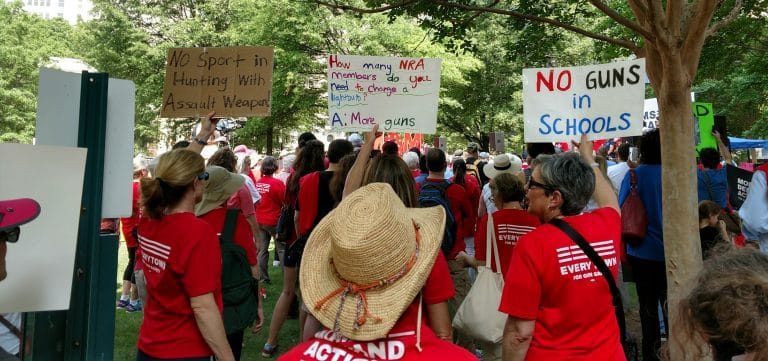At the beginning of this year, gun-control proponents appeared to be in a bit of a tough spot with the general public. We had just come off of a two-year period of sustained record-level gun sales, including explosive growth in the number of first-time gun owners. Numerous polls routinely showed a cratering in support for new gun control laws.
But then came the Buffalo shooting. And shortly after came the horror in Uvalde. These events were jarring enough to reverse the year-over-year trend of declining support for new gun laws in the polls. They also ultimately prompted the passage and signing of the first major federal gun legislation in decades, the Bipartisan Safer Communities Act. Finally, defying all expectations, the House of Representatives ended up voting on and passing the first federal “assault weapons” ban bill in nearly three decades.
That’s certainly a major shift in political tailwinds for the issue. But does that now mean that gun control is an issue with momentum and political salience for voters heading into the midterms?
The answer is probably not. At least for now.
To begin with, even though the passage of an assault weapons ban through the House is a significant development, its days as a high-profile piece of legislation are bound to be short-lived due to lack of Republican support in an evenly divided Senate.
The President is reportedly attempting to cajole top Democratic Senators into acting on the bill, but Senate Majority Leader Chuck Schumer (D.) hasn’t even mentioned whether or not he would bring the bill to the floor. He certainly knows the bill has no shot of achieving the requisite support of at least 10 Republicans to pass. The death of such a big achievement for gun-control advocates is likely to blunt some of the momentum on their side as of late.
Additionally, the most recent public polling also seems to indicate the public appetite for new gun control that seemed to spike in the early summer has been blunted somewhat among voters. A Fox News poll released Thursday finds that while generic ballot polling continues to show a narrowing between Republicans and Democrats—something that has been a sustained shift, largely due to abortion politics—the salience of guns has started to wane among voters.
Only seven percent of voters listed guns as their top election issue, down from twelve percent in June when Fox conducted the same polling. Another poll conducted by The Economist/YouGov during the same time period also found a similar response from voters, with six percent saying guns were their most important issue.
Additionally, voters overall once again say they give Republicans the advantage on guns over Democrats by three percent, according to the Fox poll. That represents a six-point swing from June, in the immediate aftermath of two mass shootings, when Fox found a three-point advantage for Democrats. Among just independent voters, pollsters reported a 21-point advantage for Republicans on the issue.
A six-point swing toward Republicans among voters broadly, anchored by a 21-point advantage among independents, is a positive sign for opponents of gun control. This swing to the GOP on guns occurred despite a major shift among voters toward Democrats on the issue of abortion, suggesting the results were not simply the result of a conservative-leaning sample. That bodes well for gun rights proponents heading into November’s elections.
“The issue climate remains extremely favorable to the GOP,” Pollster Daron Shaw told Fox News. “The introduction of the abortion issue through the Dobbs decision means it may be ‘less terrible’ for the Democrats, but the main question continues to be whether Republicans can capitalize on their good fortune or whether they squander their advantage.”
To be clear, the results of a couple of polls are by no means a guarantee of changes among voters overall. And there are undoubtedly pockets of the country where gun control is bound to play a large role in the midterm elections regardless of what any public polling says.
In Oregon, for example, activists successfully got a sweeping gun-control initiative on the ballot for this November. Voters will be able to directly decide whether or not they want to pass a ban on magazines capable of holding more than 10 rounds, a permit-to-purchase requirement for all future gun sales, and an associated electronic database of all permit-holders that will function like a state registry.
But while Oregon’s blue-state reputation would seem to guarantee that such a measure will pass, gun control ballot measures are often less successful in blue states than outside observers might assume. The measure could ultimately be a decent barometer for how salient the issue is among voters by the time November rolls around.
For now, it looks like a combination of time and the political liability associated with aggressive gun-control policies, such as banning the sale of the popular AR-15, have started to blunt the momentum gained by gun-control politics in the last few months.







Only Members can view comments. Become a member today to join the conversation.